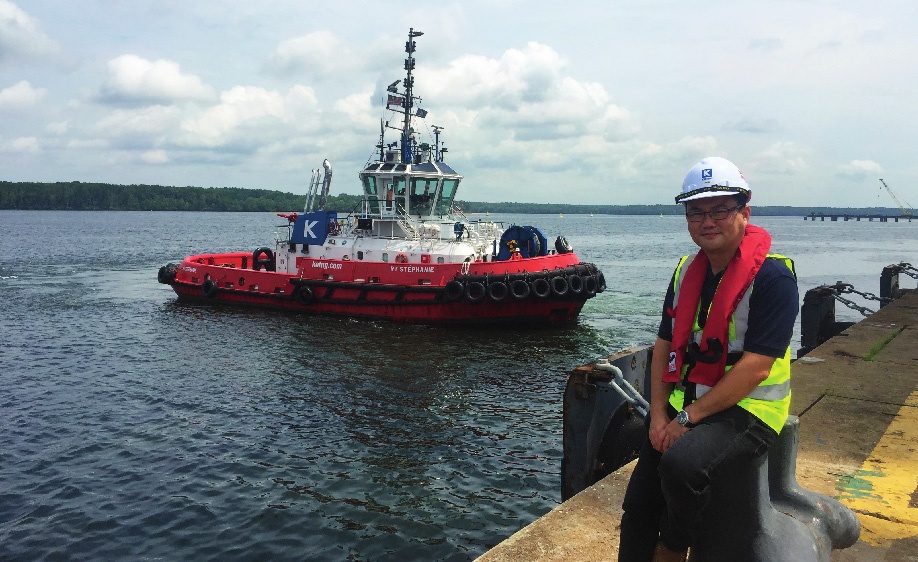
Their roots are firmly planted in Rotterdam. But in late 2015, Kotug set foot on the Asian market by opening an office in Malaysia: Kotug Asia. The innovative towage company called upon TOS Jakarta to supply and manage the crew for the initial tug boats the company operates. Eric Cheah shares his thoughts on the Asian market, the challenges of dealing with different cultures and languages and his experience of working with TOS.
What has it been like to open the new office?
‘It has been a growth period for me personally. I have a maritime background, meaning I had experience piloting vessels and berthing and unberthing with tugs, but not managing them. We’ve worked hard to achieve industry best practices, develop a cost-efficient structure and learn from and implement the quality standards that our mother company has established worldwide. It has been very helpful to work with a partner that takes equal concern in how the crew is taken care of. I’ve found that the people at TOS Jakarta really listen to our ideas and challenges and help us figure out the best course of action. For example, when we just started out the exchange rate for the Malaysian Ringgit shifted dramatically. TOS’s advice and support was invaluable in dealing with that obstacle.’
‘Language is a big item: we work with people speaking Malaysian Malay, Indonesian Malay, Dutch and English. It can be tricky to tune into the different pronunciations and styles of grammar from different cultures. Initially, it could be difficult to understand everyone and get your message across. There are also cultural differences. Asians tend to be more reserved than Europeans, causing a delay in the feedback to senior management and the parent company..’
What are your expectations of how the Asian market will develop?
‘The Asian market is notoriously difficult to predict. It is constantly growing, causing a changed market outlook every few years. That said, I expect that the current tugs in Malaysia will need an upgrade in response to the growth of the container and liquid bulk sector. We are located in the middle of the passage between China and Europe and I expect part of the transition to spillover from Singapore. Most tugs in Malaysian ports and terminals have a bollard pull of 45 tonnes. Kotug Asia started out with a bollard pull of 65 tonnes and we are working with our clients to see if they would like to have the tonnage increased. The Asian towage industry might also find a niche in the oil and gas sector. With the oil prices no longer being what they once were, we might see a move from oil rigs with pipelines to floating storage units offshore (FSUs). Such a development would create a demand for harbour or towage services to berth ships at the FSUs.
What has your experience in working with TOS been like?
Having a lean setup in Asia, TOS Jakarta is our 24/7 full-service crew management services team. Instead of just providing the crew and merely responding to our requests, they take a much more proactive role. They arrange contracts, certifications, documentation, salaries, flights, ferry tickets, assessments…
For example, when we need a flight booked, we simply email TOS a date and they will do the homework, finding the best price around that date, taking into account any local festivities or holidays and making sure all documents are in order. More generally, I like the way we communicate with each other. We are able to discuss anything with TOS and are always able to reach a consensus. I appreciate their advice and feel they are committed to finding the best solution for us.’
